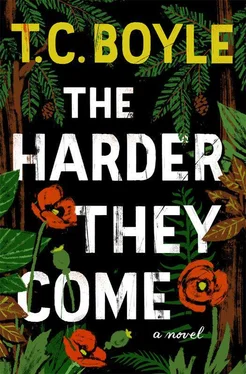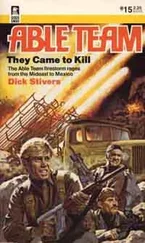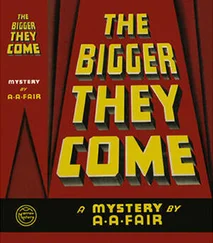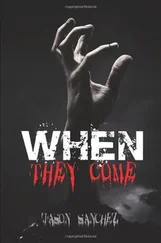T. C. Boyle
The Harder They Come
For Scott and Nicky, Chuck and Donna,
from Quintara Street to Lion Loop
The essential American soul is hard, isolate, stoic, and a killer.
It has never yet melted.
D. H. LAWRENCE, Studies in Classic American Literature
THERE WAS NO SLANT to the sun — it was just there, overhead, burning, making him sweat, making his underwear bind and the shirt stick to his back as if it had been glued on, and why he’d ever let Carolee talk him into this he’d never know. The bus lurched. There was a stink of diesel. Gears ratcheted beneath the floorboards, metal on metal, as if they were going to fuse or maybe explode into a thousand pieces at any moment. He looked beyond Carolee, out the window, feeling ever so slightly queasy, though everyone assured him the water was good here— potable, that was the word on everybody’s lips, as if they were trying to convince themselves. Plus, the food was held to the highest standards and the glasses out of which they’d sipped their rum punch and rum cokes and rum tonics scrupulously washed in hot sudsing pristine well water, because this wasn’t like Mexico or Guatemala or Belize, this was special, orderly, clean, a kind of tourist paradise. And cheap. Cheap too.
On top of it all, he had a headache. Or the beginnings of one. But that was understandable, because he’d gulped down three rum punches with lunch, so thirsty he could have drained the whole pitcher the waiter had set in the middle of the table, and no, he wasn’t going to drink the water, no matter what anybody said — not unless it came from a bottle with an unbroken seal. He rubbed his eyes. He had aspirin in his kit back on the ship. Cipro too. But that didn’t do him a whole lot of good now, did it? Anonymous streets rolled by, shops, people, dogs, ratty-looking birds infesting the trees and an armed guard out front of every store — or tienda, as his guidebook had it — and what did that tell you about the level of orderliness here? Bienvenidos . Welcome. Mi casa es su casa .
The bus slammed through one of the million and a half potholes cratering the street and Carolee grabbed for his arm. The man in the seat across from him — Bill, or was it Phil? — let out a curse. “I wish he’d slow down,” Carolee said, and he shot a look at the driver, at the back of his head that had been shaved to stubble, the white annealed scar in the shape of a fishhook at the hairline, ears too big, neck too thin, and then he was gazing out the smeared window to where the ship lay fixed in the harbor behind them like a great shining edifice built by a vanished civilization — or a vanishing one, anyway. “I don’t know,” he said, his voice crackling through its filter of phlegm as if he’d been transformed into Louis Armstrong in his old age — everything, even his laugh, coming out in an airless rasp—“I kind of wish he’d speed up so we can get this over with. Nature walk, ” he said. “In this heat? Give me a break.”
“Oh, come on, Sten, lighten up.” Carolee was giving him a look he knew from long experience, her eyes wide and her head tilted just a fraction to the right, as if what you’d just said had thrown her off balance. She was enjoying this. If it wasn’t the birds and monkeys, it was the trinket shops and the little out-of-the-way restaurants everyone assured her the tourists hadn’t discovered yet in spite of the fact that they were listed in the back of all the guidebooks and the waiters practically erupted from their shoes when the tour bus pulled up out front. She didn’t speak the language, beyond “ ¿Cuánto? ” and “ Demasiado, ” but it didn’t stop her. She wanted things. She wanted life, new experience, a change in the routine. What good’s retirement if you’re just going to sit there and rot? That was her line. He’d heard it all day, every day, until finally he’d given in, though privately he figured that since you were going to rot anyway you might as well do it at home, where at least you could drink the water.
“Didn’t you just tell me this morning how you need some real exercise instead of what, shuffleboard and bending your elbow at the bar?” She canted her head a degree more so that her hair, which she still wore long, swept across the right side of her face, and in that moment he felt the thing he’d always felt for her, the thing that had tugged at him now for forty years and more. “Or am I wrong? Did I mishear you? Huh, mister? Was that it?” She poked him for emphasis, but playfully, copacetically, one stiff finger right in the ribs, and he couldn’t help smiling despite himself.
Soon they were winding their way along the seashore, the road getting progressively worse, the houses sparser, everything so green it ached. It was one in the afternoon. The sun baked the roof of the bus. People dozed, their heads thrown back or cradled in their arms. Though the windows were open, the air hardly seemed to move, as if it were another medium altogether, solid, heavy, like sludge. Lunch had been at an authentic café, Ticos (that was what the locals were called) all around them, going through the motions of fork to mouth like anybody you’d see anywhere. That these people, this place, existed independently of him and everything he knew had astonished him all over again, as if he’d gone outside himself, a ghost drifting through another reality. He tried to capture it with his camera, snapping dutifully away, but the photos themselves were ephemeral, images flashing by on a computer screen, attached to nothing, and no one would ever see them, he knew that. The waiter had brought plates of rice and beans. Some sort of fried fish. And rum punch, thank god for that, though if he stopped to think about it he’d have to wonder about the ice cubes clacking away in the depths of the pitcher and where exactly they’d come from, as if he didn’t already know.
The driver jerked at the wheel, shifted down, then up, then down again. He felt his stomach clench. They passed a scatter of houses, a grocery, a school, and suddenly both shoulders of the road were thronged with boys in white shirts and dark trousers and girls in matching blouses and skirts marching through the ochre mud either to or from school, he couldn’t say which, half of them going one way and half the other. Maybe it was double sessions, maybe that was it. Or siesta. Did they have siesta here?
Someone had told him education was compulsory for everybody in the country, grades one through eight, after which it fell off to practically nothing. But that was all right. At least they were literate, at least they could do sums, and what more did you need for a tourist economy? Language skills, maybe. Their waiter at lunch spoke a hopped-up Jamaican dialect, a kind of reggae English, but you could hardly understand what he was saying. Still, just about everybody had at least some English, thanks to Imperial America and the consumer fever that kept spiraling outward till the buy-now/pay-later message was practically a tribal chant from every outpost of the earth. What a gulf there was between needs and wants, he was thinking, all these things, these appliances, these handheld devices. . but what he wanted now — needed, urgently — was a rest stop. And something to wet his throat, bottled water, a soda, gum, did anybody have any gum?
Carolee was dozing, her head pinned beneath his left arm, sweating there, his sweat and hers, conjoined. He tried not to jostle her as he reached for her bag, for the water in the plastic bottle with the screw cap she’d remembered to bring along and he hadn’t. The bag — one of those black over-the-shoulder things she insisted on wearing looped across her chest so the street punks couldn’t make off with it — was on the floor at her feet. He leaned into her, bracing her, and felt the muscles in his lower right side grab as he reached down for it, just a pinch there, a reminder of the intermittent back pain he’d been having and the exercises the therapist had given him to keep limber, exercises he’d been neglecting because he was on vacation, on a cruise ship, and all that seemed to matter on a cruise ship was eating and drinking — you weren’t getting your money’s worth unless you put on twenty pounds and calcified your liver.
Читать дальше












